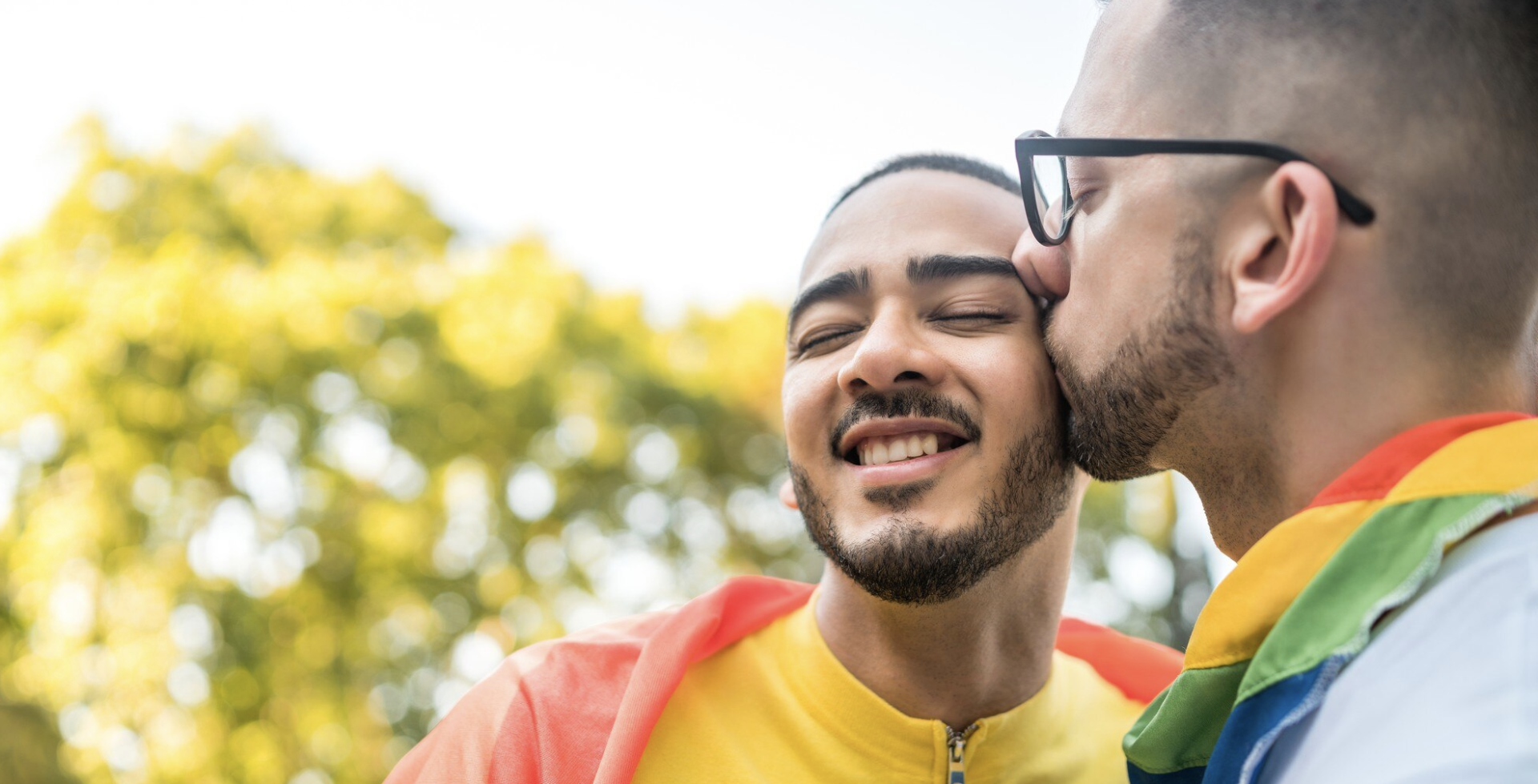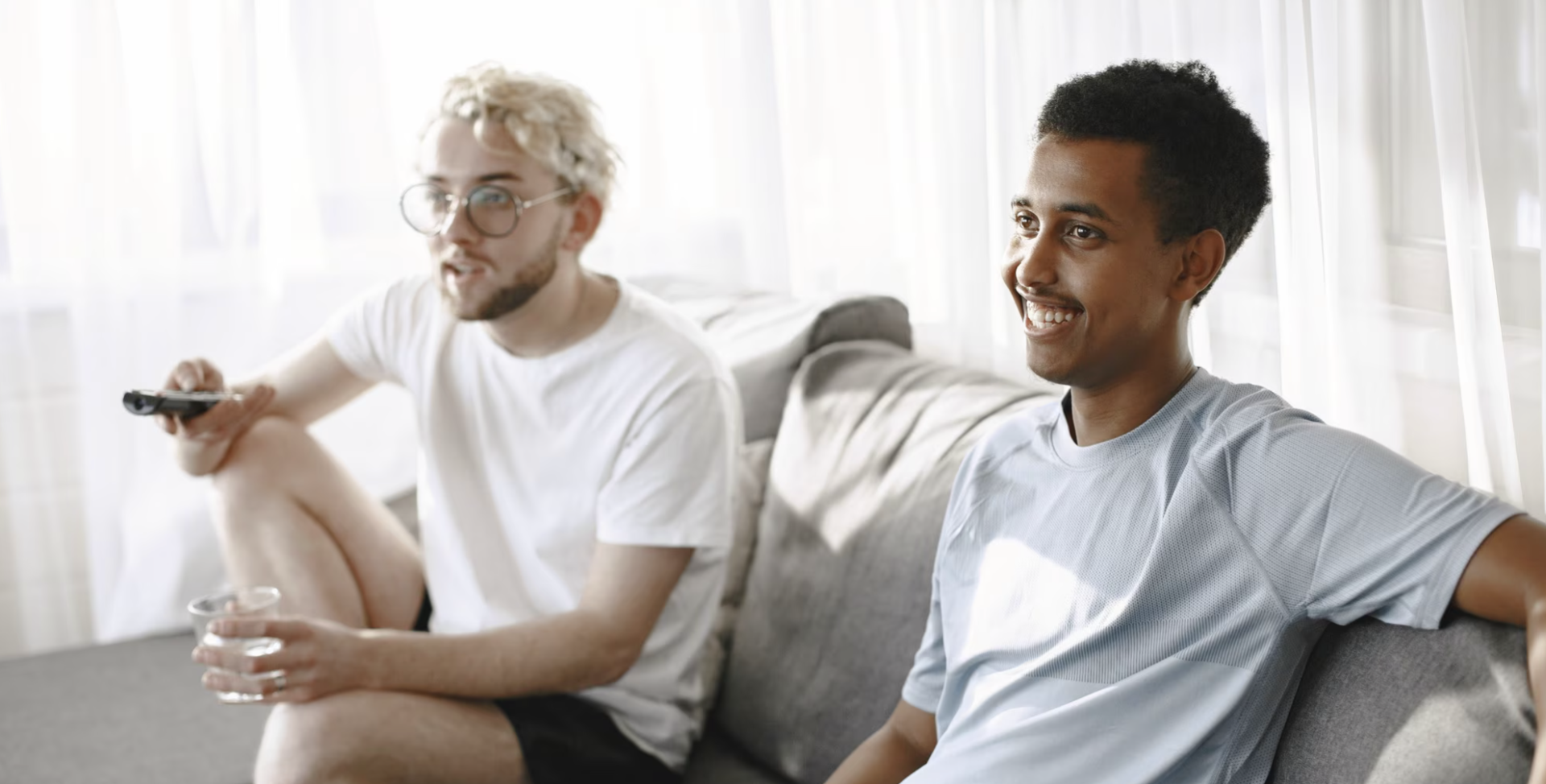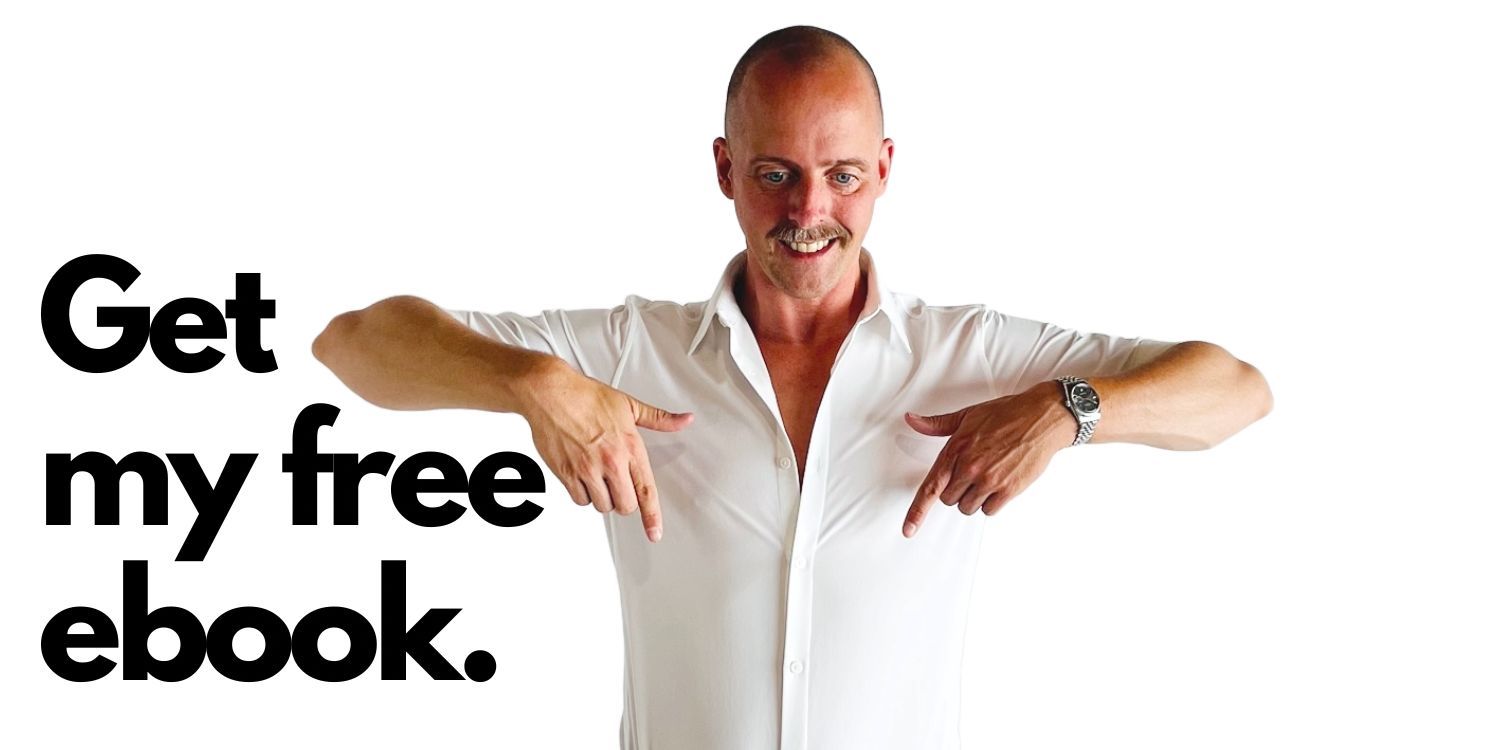What if you feel like you don't fit in?
Feb 15
/
Rene Luisman
Everyone sometimes feels left out of the group. You are the only one without a partner, without a job or who doesn't like parties. Some people feel like an outsider all their life. The feeling that no one really understands you. That you move between different worlds, without actually being part of it.
In this blog I discuss the theme of inclusion and exclusion. How does this affect the gay community and what can you do about it?
Every person belongs to different groups. You consciously choose some groups, such as your friends and sports club. But there are also groups that you do not choose yourself. The place where you were born, the family you grew up in and your sexual orientation.
With groups you automatically have to deal with inclusion and exclusion. Every group stands and falls with the fact that some people are part of it and others are not. Without inclusion and exclusion there is no group. Unwritten rules determine what is socially accepted within the group.
With groups you automatically have to deal with inclusion and exclusion. Every group stands and falls with the fact that some people are part of it and others are not. Without inclusion and exclusion there is no group. Unwritten rules determine what is socially accepted within the group.
The first time I became painfully aware of this was when I came out. Suddenly I realized I was different from my peers. My first thought was, "why does this have to happen to me?" I grew up in an environment where I didn't know any other gay man. And yet I suddenly belonged to this group. Whether I wanted to or not.
When you discover as a boy that you like men, this usually causes confusion at the identity level. The phase that follows is often one in which you investigate. You collect information about what it means to be gay and discover your sexuality by trying a few things here and there.
When you discover as a boy that you like men, this usually causes confusion at the identity level. The phase that follows is often one in which you investigate. You collect information about what it means to be gay and discover your sexuality by trying a few things here and there.

In my case, I read all the gay-related books in the library, looked for personals in the newspaper and on teletext, and visited the local gay café. And with these actions I got to know other gay men. Slowly I connected more and more with the gay community.
For some men, this community feels like coming home. They feel safe and seen. Something they may have missed within their own family structure. If this bond feels very strong, some even speak of their 'chosen family'.
There are also men who feel less connected to the gay scene. For example, because they have no need for this, or experience little or no connection with other gay men.
In some periods I felt closely connected to the gay scene. Periods in which I regularly went out, participated in Pride walks and was actively involved in the leather scene of Amsterdam, Berlin and Chicago.
But I also know many times when I felt like an outsider. Times in which it was difficult for me to connect. If I was the only one who didn't use drugs for once, if I was a bit overweight and therefore didn't feel well or had trouble committing to a partner. In those moments I felt lonely and lost. I couldn't connect, even though I wanted to.
But I also know many times when I felt like an outsider. Times in which it was difficult for me to connect. If I was the only one who didn't use drugs for once, if I was a bit overweight and therefore didn't feel well or had trouble committing to a partner. In those moments I felt lonely and lost. I couldn't connect, even though I wanted to.
Emotional and social loneliness
Many gay men go through a period in their lives when they feel lonely. This often involves emotional or social loneliness. With emotional loneliness you miss someone in your life to whom you can go for support and share your feelings. For example, an intimate partner or deep friendship. Social loneliness is about having a limited network, which makes you feel like you don't belong and are on your own.
I know both myself. When I feel lonely, I withdraw. I feel bad and find it hard to share this with others. The shame is too big. I look at others, see how they find each other and get along well. And I conclude that there is something wrong with me that prevents me from doing this.
My own beliefs get in the way at such a moment. Compared to others, I feel like I'm lacking something. Others are better looking, more confident and socially adept. At least that's what I tell myself. And with that I only increase the distance to the other.
While I tend to withdraw, I now also know that I would do better to actively seek social interaction at such times. In this way I bridge the distance between me and the other. And I feel more support and connection.
While I tend to withdraw, I now also know that I would do better to actively seek social interaction at such times. In this way I bridge the distance between me and the other. And I feel more support and connection.
Inclusion and exclusion in groups
'Do I (still) belong?' is a question that concerns many of the men I mentor. A question that sometimes leads to confusion, frustration, isolation or over-adjusting. Underlying this question, there are often two themes: embracing your identity and finding your place. Usually there is an intense longing for a place where you can be yourself unconditionally. Something that every human being at the core longs for, based on the need for safety, support, recognition or security. But before you can assume that others will accept you, you must first accept your own identity.
If your environment used to have strong views about masculinity and homosexuality, these views may be hindering your process of self-acceptance. You may have accepted some of these beliefs yourself. This is also known as internalized homophobia.
Inclusion and exclusion happens in all groups. Outside, but certainly also within the gay community. Gay men among themselves sometimes have strong ideas about what you should meet. Much attention is paid to appearance. For instance, on Grindr it was quite normal for a long time to exclude people on the basis of ethnicity, physique or behavior. And think of the various labels and subcultures, such as leather men, bears and fit boys.
Often within a group we are focused on the differences. The distinction between 'us' and 'them' is reinforced by conscious and unconscious (pre)judgments. You talk differently, you have different views, you look or feel different. Unwritten rules with which we find each other, but with which we unconsciously exclude others as well. Yet we live in a world where we simply differ from each other. Acknowledging that and seeing that this does not make you more or less helps to accept yourself.
If your environment used to have strong views about masculinity and homosexuality, these views may be hindering your process of self-acceptance. You may have accepted some of these beliefs yourself. This is also known as internalized homophobia.
Inclusion and exclusion happens in all groups. Outside, but certainly also within the gay community. Gay men among themselves sometimes have strong ideas about what you should meet. Much attention is paid to appearance. For instance, on Grindr it was quite normal for a long time to exclude people on the basis of ethnicity, physique or behavior. And think of the various labels and subcultures, such as leather men, bears and fit boys.
Often within a group we are focused on the differences. The distinction between 'us' and 'them' is reinforced by conscious and unconscious (pre)judgments. You talk differently, you have different views, you look or feel different. Unwritten rules with which we find each other, but with which we unconsciously exclude others as well. Yet we live in a world where we simply differ from each other. Acknowledging that and seeing that this does not make you more or less helps to accept yourself.
A judgment about the other is often accompanied by a judgment about yourself. You also reject a part of yourself. This part should not be there and does not get the chance to use its full potential. It is therefore worth examining your own beliefs.
And besides what makes you unique, also look for what you have in common. It is precisely in our weaknesses, fears and insecurities that we find each other.

Explore your own beliefs
Acknowledging differences is an important condition for being able to connect with others. The questions below will help you to explore your own beliefs.
Ask yourself:
What beliefs have you inherited in your life when it comes to masculinity and homosexuality?
Are there any of these beliefs that you still fully or partially believe?
How do these beliefs affect how you see yourself and others?
Who would you be without these beliefs?
Sharing experiences helps to connect
Sometimes we think we are the only ones with anxious and insecure feelings. You think you're the one who feels alone, who's insecure about his body or who wonders why he can't find a partner. Other men always seem to be much better off or more comfortable.
Instead of talking about it and checking our assumptions, we keep it to ourselves. Yet these feelings are universal. Just by talking about it you will probably find out that there is much more that connects you and the other person.
Instead of talking about it and checking our assumptions, we keep it to ourselves. Yet these feelings are universal. Just by talking about it you will probably find out that there is much more that connects you and the other person.
Below you will find an exercise that you can do to reduce the distance between you and others.
Exercise to create more connection
Exercise to create more connection
- Divide a blank sheet of paper into four sections.
- Write the name of someone close to you in each box.
For example, your partner, a family member and two friends. - Please indicate on a scale of 1 to 10 how close you feel to each of these people.
- Now rate how you would like it to be.
- What can you do yourself to achieve this?
For instance, opening yourself up more by sharing what is on your mind, initiating other activities, etc.
You read an article by Gay Men Coaching
How I can support you:
- Self Love Course - Learn step by step how to build a positive self image.
- Men's Group - Find out how other gay men deal with issues such as intimacy and sexuality.
- Coming-out program - If you could use some support before, during or after your coming-out.
- Individual coaching - If you want to improve the relationship with yourself or others.
And more about me and my approach:
Follow me on:

Get in touch
-
Geestbrugkade 32, 2281 CX Rijswijk, Netherlands
-
contact@reneluisman.nl
-
Chamber of Commerce number: 59693908
-
IBAN: NL49 KNAB 0259 9752 22
Join Our Newsletter
Get monthly updates on news, articles, tips and more.
Thank you!
Gay Men Coaching © 2014 - 2025

with 5 powerful tools to feel confident
As a bonus you will receive a monthly e-mail with tips & inspiration. You can easily unsubscribe at the bottom of every newsletter.
